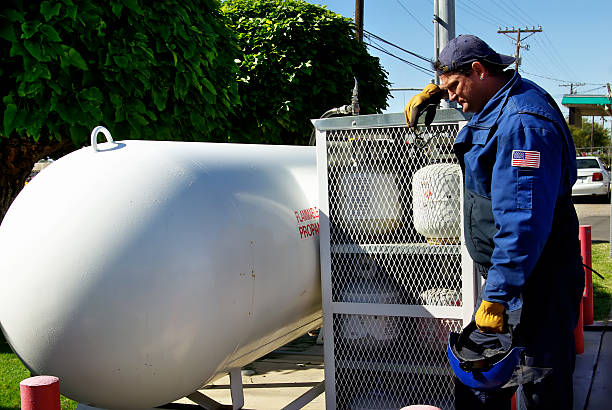Essential Health and Safety Tips for Propane Delivery Staff

Ensuring the health and safety of your propane delivery staff is crucial. This guide details some vital tips for keeping your team safe and healthy.
Proper Training
Proper training is the foundation of safety for every propane delivery staff. Ensure that all employees receive comprehensive training on safe handling procedures, emergency response guidelines, and the safe use of personal protective equipment (PPE). Regular refresher courses keep safety protocols in mind and help employees stay updated on best practices.
Use of Personal Protective Equipment (PPE)
Wearing appropriate PPE is essential for preventing injuries. Delivery staff should wear gloves, safety glasses, and steel-toed boots to protect against physical hazards. High-visibility clothing helps ensure they are seen in low-light conditions. Always check that PPE is in good condition and fits properly.
Safe Lifting Techniques
Propane cylinders can be heavy, so using safe lifting techniques is crucial. Train staff to lift with their legs, not their back, and to avoid twisting while carrying heavy loads. Encourage the use of mechanical aids, such as dollies or lifts, to reduce the strain on their bodies.
Regular Vehicle Maintenance
Keeping delivery vehicles in top condition is essential for safety. Conduct regular inspections and maintenance checks to ensure brakes, tires, lights, and other critical components function correctly. A consistently well-maintained vehicle reduces the risk of accidents and breakdowns, which helps to keep deliveries arriving on time.
Awareness of Surroundings
Encourage staff to be aware of their surroundings at all times. This includes being cautious of traffic, pedestrians, and potential hazards at delivery sites. Encourage a safety-first mindset where employees take a moment to assess their environment before proceeding with their tasks.
Emergency Procedures
Make sure that all staff are familiar with emergency procedures. This includes knowing how to shut off the propane supply in case of a leak, using fire extinguishers, and contacting emergency services. Regular drills reinforce these procedures and ensure everyone knows what to do in a crisis situation.
Hydration and Breaks
Propane delivery can be physically demanding, especially in extreme weather conditions. Encourage staff to stay hydrated and take regular breaks to avoid fatigue. Depending on the season, provide water and a shaded or warm resting place. Keeping employees well-rested and hydrated helps maintain their health and safety.
Safe Driving Practices
Safe driving is crucial for delivery staff. Encourage adherence to speed limits, use of seat belts, and avoidance of distractions like mobile phones. Regular training on defensive driving techniques can help staff navigate challenging driving conditions and reduce the risk of accidents.
Handling Propane Safely
Proper handling of propane is critical. Ensure staff are trained to check for leaks, use appropriate connections, and follow safe delivery procedures. This includes turning off the vehicle engine during delivery, grounding the tank to prevent static electricity buildup, and not smoking or allowing open flames near propane.
Reporting and Addressing Hazards
Create a culture where employees feel comfortable reporting hazards. Encourage staff to report any safety concerns or near-misses immediately. Address these reports promptly to prevent future incidents. Regularly review safety procedures and make necessary adjustments based on feedback and incident reports.
















